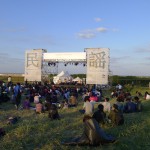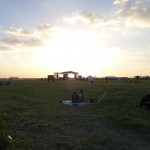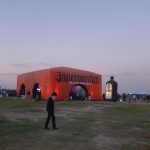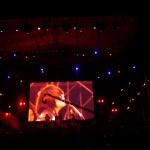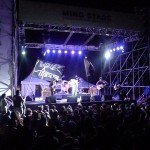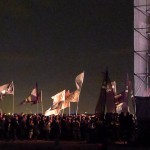On Friday, the Radar team headed to one of the easternmost extremes of China. Midi Festival was back in Shanghai for the second time in 2013, having inked some kind of deal with a property developer who obviously sees this spit of sand dune and wild grass as a future billion-dollar landmark.
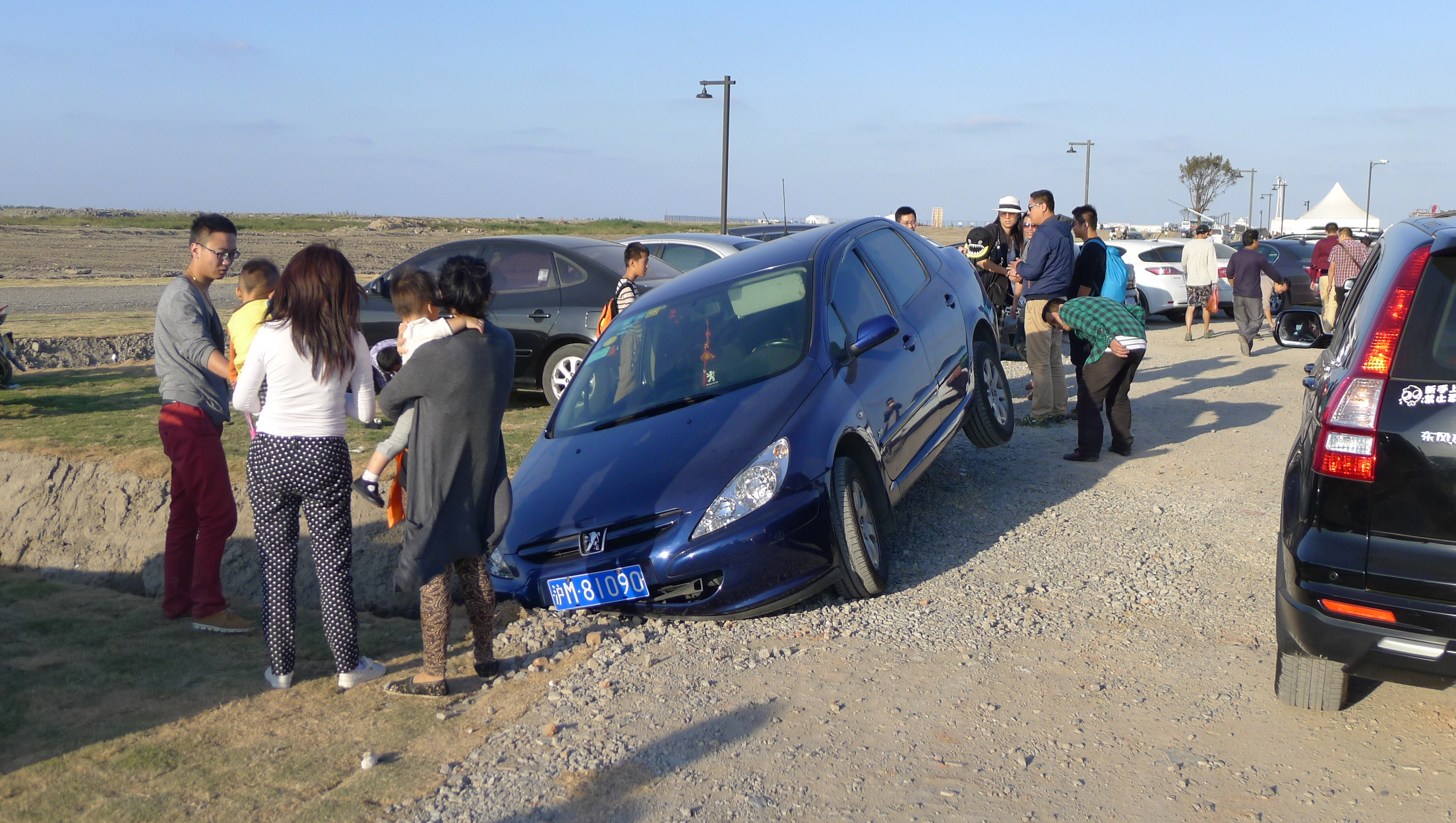
In most part to differentiate this edition of Midi from the one that took place just up the road in May of this year (with pretty much the same lineup), Changjiang Midi was billed as the biggest festival in China, like, ever. With 9 stages plus another 2 in the campsite, plus free camping for all, Midi aimed to silence doubters who might have felt that the festival was cashing in on a name and a legacy.
All the talk was about how incredibly far the site was from downtown, but let’s face it, Chinese city dwellers are particularly lame when it comes to traveling to parts unknown. Midi’s new home at Pudong Sanjia Port was a simple hour-long journey from People’s Square: not only was there an efficient and regular shuttle bus running from the second-to-last stop on the subway (line 2), but there were also huge signs pointing out the Midi site from about 5km out. Just as well, because the last few hundred meters were dirt road, flanked by what we imagine are the developer’s first build “Bellagio Villas”: huge houses built on the sand and silt deposited by the mighty Yangtze. Of course, the huangniu were still offering to get arrivals in for small hongbao, a continued and depressing fixture at shows and festivals.
The first thing that strikes you as you are deposited in the vast dust plain that is the car park (room for a LOT of cars, something for campers to note for future editions of the festival) is how incredibly flat the site is. You can see most of the 9 stages from any vantage; this is no doubt the source of the epic 4-stage sound bleed, which is something we never thought we would be unlucky enough to be in the middle of.
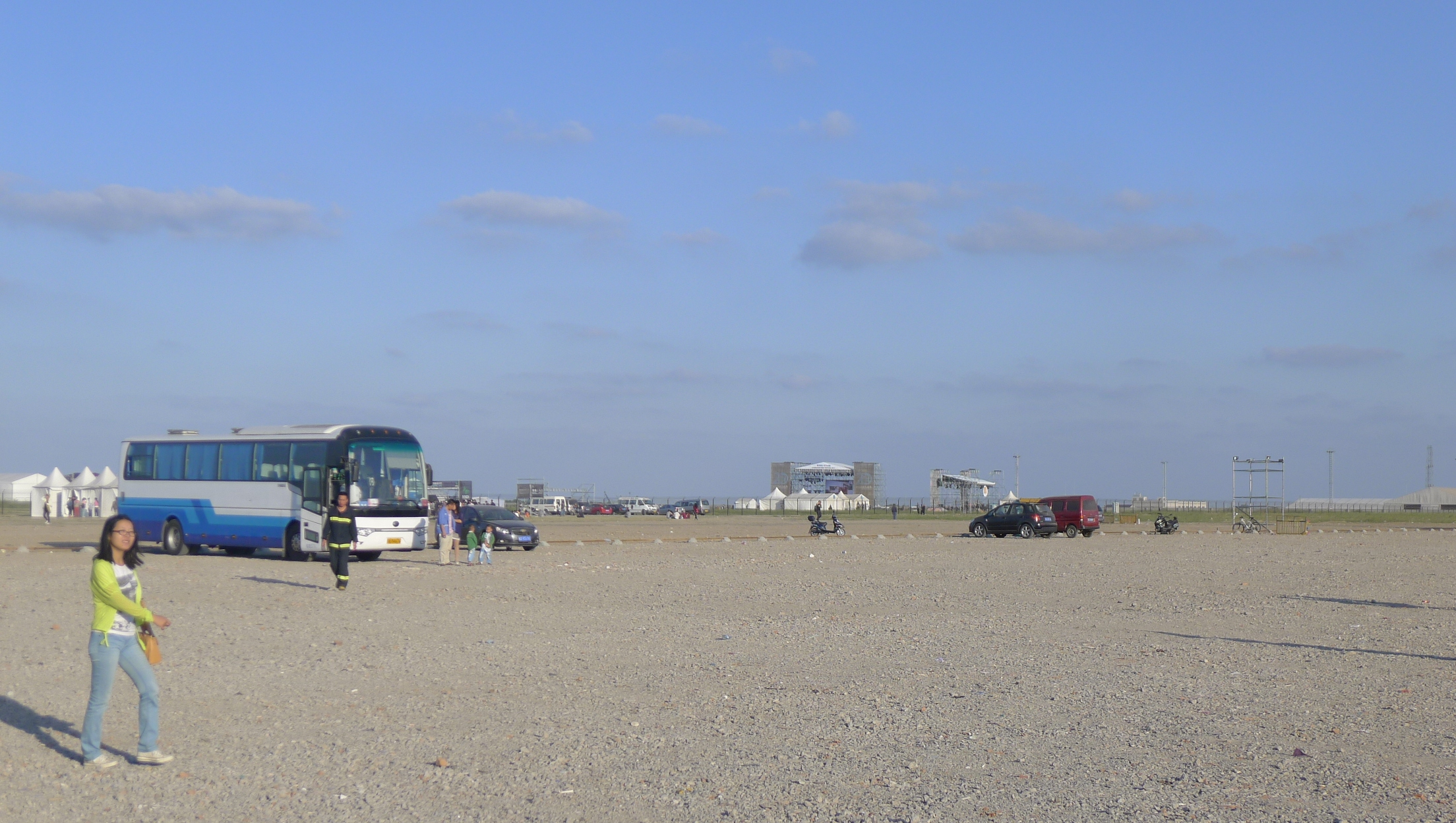
Once inside, it was obvious that there had been a considerable lack of time to prepare for this mega-festival. The stages were poorly laid out, with most of the smaller stages being eaten up by the Tang and the Song stages, which were larger by far than any of their counterparts. The Ming folk stage was placed in front of the ocean with a natural mini-amphitheater meaning that people could sit and still view the stage. It was one of the nicer spots, but all too often the music was overrun by the Warring States metal stage and the Tang main stage.
In terms of programming, well, we will keep on going about the lack of attention to programming at Chinese festivals until something significantly changes. Apart from the extremely irritating lack of programmes (we were unable to get one when we entered at 3pm on the third day), there was a disturbing lack of clarity about what was going on across any of the stages – no advance warnings on screens, no timetables near the stages (well done JZ on that one!). Honestly, it’s a huge shame that a great festival like Midi (and Modern Sky for that matter) doesn’t work harder to organize bands in an order that takes the festival-goer on a journey, to build anticipation, to create excitement around the artists. When you have 200 bands playing on 9 stages, this is of paramount importance. When Nova Heart played the second stage, the first song was backed by the advert reel with accompanying soundbytes (unforgivable really). But we’ve been here before, many many times. This review is for different matters.
The most important and intriguing development was the development of Midi as a real camping festival. There have been tents at Midi since we went to our first edition in Haidian Park back in 2006, but they were always of the sun protection variety. We imagine there might have been something similar at Midi Beijing’s new location in the Pinggu Music Valley this year, but this was our first actual experience of it. We were expecting something raw and messy, more Reading Festival than Fuji Rock, but we were really pleasantly surprised. Secure campgrounds, managed by incredibly friendly and happy staff led to neat and tidy rows of tents and neat and tidy stacks of rubbish. Apparently there were 2 stages in the campsite – the one we saw wasn’t operational at 9pm, but they were rolling all night by all accounts. Whether this was a good or a bad thing for the campers, it really looked like fun and massive hats off to Midi for pulling it off.
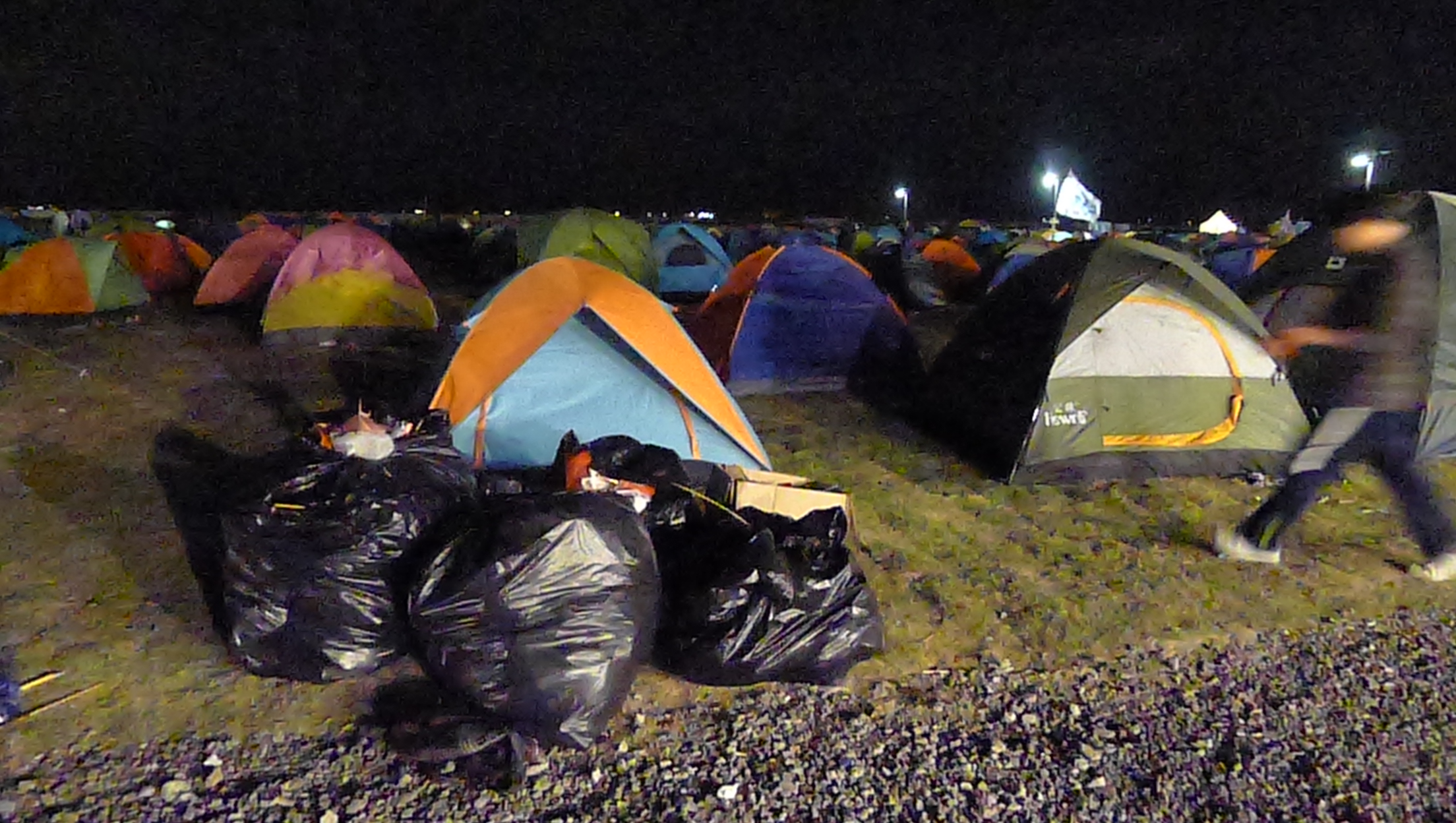
There were by estimates 8-10,000 people at the festival each day (rendering the 9 stages massive overkill) and between 1-3,000 people camping, with plenty of room for growth. Of course, if it had rained and the already strong wind picked up a little, this is a very exposed part of China, but thankfully for year 1, the elements were good to us all! Ultimately, at 120RMB a ticket per day (300 for 3 days), a fee that included free camping, this really is an amazing opportunity for young Chinese to get out of their houses for the majority of the October holiday, to enjoy relative freedom from school, parents, government, law makers and the community at large, and to enjoy some semblance of nature whilst listening to music.
